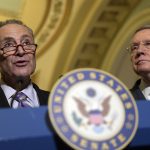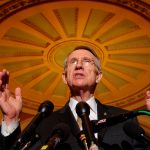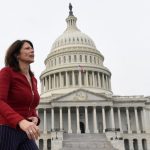A growing number of Senate Republicans are pushing to delay leadership elections after an underwhelming performance in the midterms, creating a new headache for Minority Leader Mitch McConnell.
Sens. Ron Johnson (R-Wis.), Mike Lee (R-Utah) and Rick Scott (R-Fla.) are circulating a letter pressing colleagues to sign onto a postponement of elections currently scheduled for Wednesday morning. The movement signals growing discontent within the Senate GOP over the increased likelihood the party remains in the minority next year.
“We are all disappointed that a Red Wave failed to materialize, and there are multiple reasons it did not,” the senators say in the letter, first obtained by POLITICO. “We need to have serious discussions within our conference as to why and what we can do to improve our chances in 2024.”
They propose to postpone leadership elections until after all the Senate races are called, which will take nearly a month as the Georgia runoff election looms in early December.
“Holding leadership elections without hearing from the candidates as to how they will perform their leadership duties and before we know whether we will be in the majority or even who all our members are violates the most basic principles of a democratic process,” the letter reads. “It is certainly not the way leadership elections should be conducted in the world’s greatest deliberative body. “
Separately, Sen. Marco Rubio (R-Fla.) tweeted Friday that leadership elections should be delayed while the party makes “sure that those who want to lead us are genuinely committed to fighting for the priorities & values of the working Americans (of every background) who gave us big wins” in places like Florida. A Rubio adviser said that the Florida senator wants the party to define its vision for the next two years while also taking a look back at how they may end up with minority status in the Senate for another term.
Sen. Josh Hawley (R-Mo.) has also called to delay leadership elections and said he will likely vote against McConnell. The other GOP senators are not yet taking as hard a line, and said they want “a chance to hear from leadership candidates as to what type of collaborative conference governing model we should adopt.”















